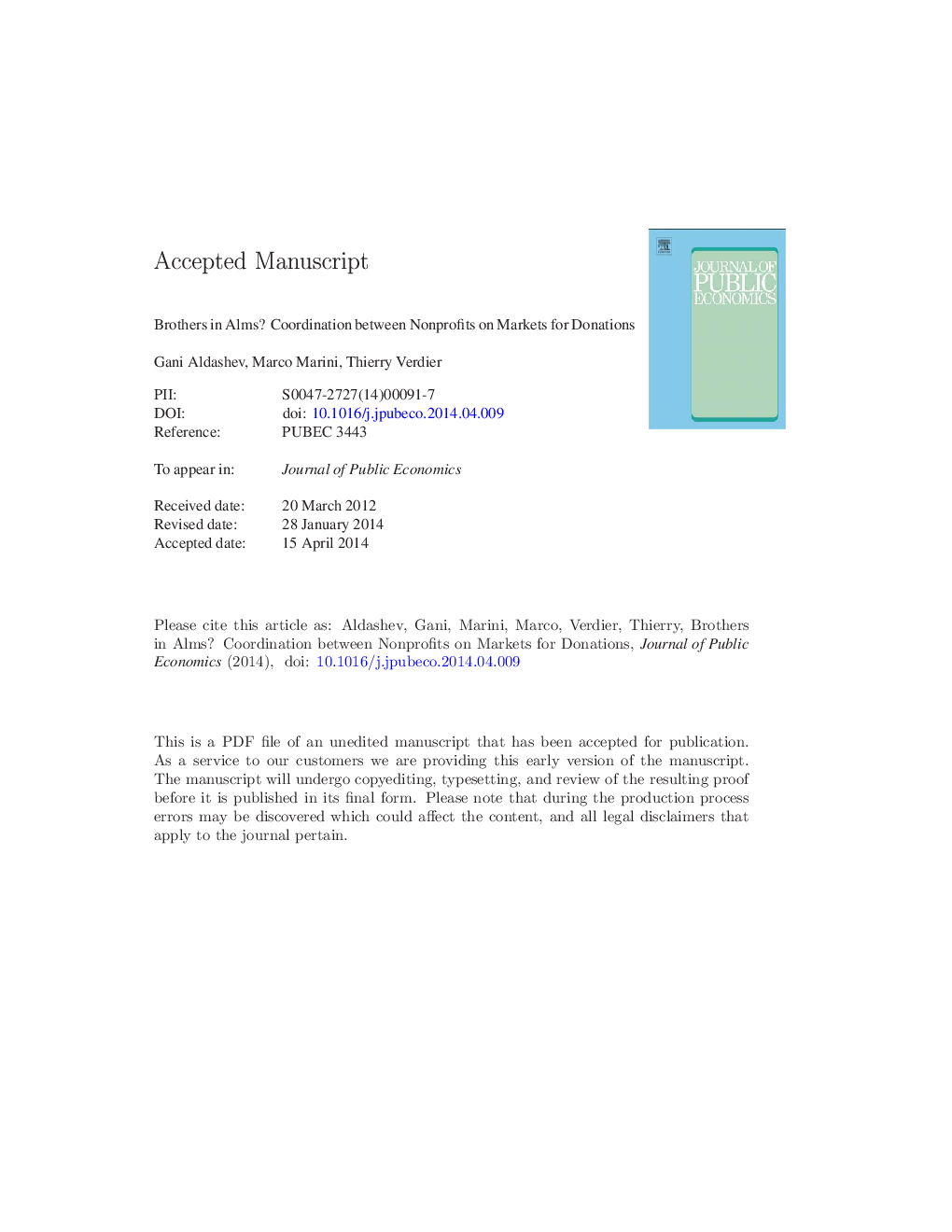| Article ID | Journal | Published Year | Pages | File Type |
|---|---|---|---|---|
| 7370294 | Journal of Public Economics | 2014 | 39 Pages |
Abstract
Mission-driven nonprofit organizations compete for donations through fundraising activities. Such competition can lead to inefficient outcomes, if nonprofits impose externalities on each others' output. This paper studies the sustainability of fundraising coordination agreements, using a game-theoretic model of coalition formation. We show that three key characteristics determine the stability of cooperation between nonprofits: (i) the alliance formation rule, (ii) the extent to which fundraising efforts are strategic complements/substitutes, and (iii) whether deviation from the agreements is by an individual or by a group of nonprofits. We analyze how the interaction of these three features induces (or not) the stability of Pareto-optimal full coordination in fundraising.
Related Topics
Social Sciences and Humanities
Economics, Econometrics and Finance
Economics and Econometrics
Authors
Gani Aldashev, Marco Marini, Thierry Verdier,
